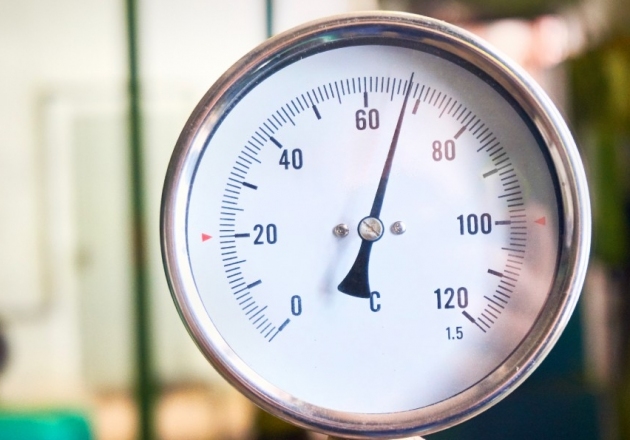During tablet production, friction and movement of parts and materials on rotary presses generates heat. Over long run times, studies have recorded surface temperatures exceeding 50 degrees, highlighting the potential for temperature-induced variability in tablet quality.
Approach
Three formulation blends were prepared with varying ratios of microcrystalline cellulose and lactose. All blends contained 3% super disintegrant and 0.5% magnesium stearate. Tablets (350mg) were compressed using 10mm Flat-faced tooling on Merlin’s compaction simulator fitted with a temperature-controlled jacketed die. The punch movements simulated a Korsch XL100 rotary press operating at 30 rpm and die temperatures of 20, 30, 40, 50 and 60 degrees were explored.
Tablet strength was compared at a set compaction pressure of 100 MPa, to assess the influence of temperature on compaction behaviour and performance.
Results
All three blends demonstrated acceptable tabletability, with tensile strengths exceeding 1.7 MPa benchmark for robust compacts. At 20 degrees, the formulation containing the highest proportion of MCC produced the strongest compacts, while the lactose-rich blend showed the lowest strength values. This investigation looked at excipients only, however it is possible to investigate APIs as well.
These results suggest that increasing temperature enhances bonding between particles during compression. However, the extent and consistency of this effect differ depending on formulation composition.
Our Case Study Highlights:
- Rising compaction temperatures significantly affected tensile strength across all blends.
- MCC-rich blends showed the greatest temperature-related increases, while lactose-rich displayed smaller, more predictable changes.
- We simulated a Korsch XL 100 press with a temperature-controlled die.
- Findings highlighted the need to monitor equipment heating during long runs.
Conclusions
Compaction temperature significantly influences tablet strength, with the extent of this effect depending on the formulation composition.
- Ductile materials such as MCC are more sensitive to temperature increases, potentially due to enhanced plastic deformation or bonding changes at elevated temperatures.
- Brittle materials such as lactose show smaller, more predictable strength increases.
Understanding these differences is crucial for ensuring robust tablet performance during scale-up and production, where equipment heating can impact product quality.
Ask Us For A Consultation Call
Or you can call us on +44(0)1384 900 265


